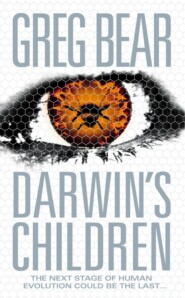По всем вопросам обращайтесь на: info@litportal.ru
(©) 2003-2024.
✖
Quantico
Настройки чтения
Размер шрифта
Высота строк
Поля
Al-Hitti could not help avoiding the tall American’s gaze. There was something about the blue eye that reminded him of the sky over a desert waste.
Al-Hitti leaned forward. ‘What sort of proof is this, just a package of powder extracted from the soil of Texas, where a steer has died, perhaps? How can we believe the rest of your story?’ Al-Hitti held the package out between two fingers. ‘I hear this is easy to make. That is what I am told.’
‘Believe what fools say,’ the American said, ‘less the fools they.’ He brought forth a small knife, pulled open a blade, and laid it on the table between them. ‘Rub it on your skin like baby powder. Let’s breathe it together.’
Al-Hitti shrugged too quickly, hiding a shudder. ‘We are not here to piss up a wall.’
‘No,’ the American said.
‘When will the final product be ready?’
‘When money is made available. I will conduct my own tests and you will do yours. Then, next year…Jerusalem.’
‘There are very few Jews in Iraq. Saddam no longer protects them, and the clerics…’ He lowered his eyelids. He was getting ahead of himself, like a cart before a horse.
‘Until the gene sockets are filled, as specified, Jews need fear this no more than you or I,’ the American said. ‘And no less.’
‘Who is paying for what you have done so far, a Wahhabi?’ Al-Hitti asked with quiet anger. ‘May he die in the bed of an incontinent pig.’ Al-Hitti did not like Wahhabis. What they had done to maintain their hold on power had killed many of his best men. Now, all Saudi Arabia was in turmoil. Just retribution had finally arrived.
The American noiselessly pushed back his chair. He looked down on Al-Hitti.
‘If I say yes, and arrange for people, and the money is given?’
‘Then we will meet next year,’ the American said.
The cousin’s cousin had had enough, and a crack like a tiny shot sounded in the small coffee house. Al-Hitti turned to look. The proprietor raised a swatter besmirched by horsefly.
When Al-Hitti turned back, the American was at the door, parting the beaded curtain. Another horsefly entered with a looping buzz and the American was gone.
The proprietor returned to the table to remove the glass. He stared at Al-Hitti through his one good eye. ‘Is it that you are taking tea alone today?’ he asked.
No one of any importance in Iraq other than himself could remember seeing a pale blond American with the face of a warrior and eyes of two different colors. But there was always the plastic bag. And what was in it was true. Indeed, very true.
Al-Hitti had the powder examined and then tested. It made five kidnapped Iraqi businessmen and two secretaries of the clerics ill and pitiable. In the dark, their lesions glowed first green and then red, so the doctors reported to people that Al-Hitti knew.
And then they died, all of them.
As the months passed, Al-Hitti came to believe that it would actually happen. His hope reflected how bad things had become for his people. Three years ago, the Dome of the Rock had been blown to pieces by a Jewish terrorist to make way for the rebuilding of their Temple. In response, a few weeks later, on October the fourth—thereafter known as 10-4—another blow had been struck against the financier of all things evil, the United States. Thousands had died. Though he had secretly approved and even gloated, it had made Al-Hitti’s job that much harder.
The Israelis were now assassinating the immediate families of suicide bombers and leaders of Hamas and Hezbollah. Muslim youth rushed to destruction and did not seem to care that by so doing they were also condemning their brothers and sisters, their mothers and fathers—and then, their uncles and cousins. Back and forth, the slaughter turned all into monsters.
In the late summer or early fall, he knew, Saudi Arabia would be invaded by tens of thousands of anti-Wahhabists working out of Sudan, Oman, and Iraq. Irony of ironies, it was said Americans were financing a number of the insurgents, including Iraqis, in hopes of replacing the House of Saud with a more stable regime. The enemy of my enemy is my friend. For the time being.
Once again Muslims were engaged in Takfir wa Hijra, condemnation and exile, killing nonbelievers and traitors—Westerners and Muslims alike—to reclaim the holy lands.
The next hot wind would blow from the desert and cleanse the world like a pillar of fire.
CHAPTER THREE Year Zero Arizona (#ulink_e6b16fb8-6e56-5078-bf0f-a32b1bd5baf9)
Special Agent Rebecca Rose stared through the window of the FBI Econoline van at the dark desert along the highway. Brian Botnik from the Phoenix Field Office looked sideways at Rose in the front passenger seat. She rubbed her hand nervously over her knee—gray pants, cuff of dark pink cotton blouse protruding half an inch from her coatsleeve, fingers thin and strong, red-enameled nails bitten short and chipped. It was five a.m. and she could almost see the heat of the past day rising slowly into space. That’s what happened at night—the Earth shed its heat like a cooling corpse. The sun hid away, nowhere to be seen; maybe it would never return.
‘Gerber’s a good fellow,’ Botnik said. ‘But he hates being kept in the dark. So tell me—why are we keeping him in the dark?’ Botnik was a big man with a deep voice, a tight stomach, farmer’s hands, and sandy hair—attractive, had she the energy to think about such things. Ten years younger than her, she guessed, but neither inexperienced nor a dummy.
Rose smiled. ‘Because if I tell him why we’re interested, he’ll think we’re idiots.’
‘I’m open to that possibility,’ Botnik said, flashing a grin.
‘Hush,’ Rose said.
Two FBI analysts sat in the middle seat behind them. Both were young, white, clean-cut, and male. Both were respectful and earnest. Little pitchers have big ears. The younger, whiter, and more clean-cut the male agent, the more likely he would talk behind her back.
After the flights and the drive from Tucson, she was bone-tired and on the edge of hallucinations; her science and most of her sense had fled. But she had to stay tactical. This would not be easy. Every cop seemed to regard FBI agents, especially senior agents, as short-timers going down for the third time in a flood of politics. Some felt sorry, others exhibited a parochial gloat. It was getting harder and harder to focus on work even when she wasn’t exhausted.
The headline of the newspaper folded across the divider read:
FBI ‘PATRIOT’ FILES KEPT ON
6 DEM SENATORS, VP:
‘Traitors to the Nation’, Dossiers Claim
Rose was acquainted with the agents who had prepared those dossiers. Two were clowns; she had thought that the other six were good men. Now they were buried in the depths of Headquarters or testifying before a federal grand jury. One and all, they had messed their britches.
Screw that. Just do your job.
The first sign of happy times along the highway was a single-vehicle set of peel-out marks. Sixty yards further on, deep truck-tire gouges marred the right shoulder. In the blink of an eye, a second pair of smudges like strokes of artist’s charcoal extended for thirty feet. A half-mile beyond that, multiple curving conga lines of laid-down rubber—some parallel, some crossing—played with the divider for a hundred yards. Those tracks ended at an overturned and battered big rig trailer.
Patrol officers were stationed to flag drivers through the single open lane. At this hour of the morning there was almost no traffic.
Botnik steered the Econoline to the side of the road, parking behind a gray Suburban marked with Arizona’s rising sun. As Rose stepped out and stretched, the young agents pulled aluminum cases from the rear of the van. Botnik introduced her to three Department of Public Safety officers. Lieutenant Colonel Jack Gerber, the Deputy Director of Criminal Investigations, had been dispatched from Phoenix along with two analysts. They had been waiting at the scene for three hours. Remarkably they were still willing to pretend not to be teed off.
Gerber was a tall lean man in his late forties with straight black hair and a brown boyish face lacking any trace of a beard. Multi-racial, Rose judged: American Indian, Anglo, and some black. America’s future. His eyes were brown and his large fingernails curved around the upper half of each fingertip, rounded and neatly manicured.
Rose walked with Gerber and Botnik back along the highway and studied the scene from the beginning of the skid marks. Gerber was explaining what little they knew. ‘The chase must have begun about ten miles back. Patrolman Porter queried the truck’s RFLM—Radio Frequency License and Manifest transponder—and got a bogus authentication. When the truck’s driver ignored his lights and siren and the truck failed to respond to Cop Block, the patrolman became aware he might have a situation. We get a lot of drug traffic. Patrolman Porter was an excellent officer, very keen on his job.’
All cars and trucks in the U.S. were now required to have Cop Block. A patrol car could radio a coded signal that slowed and then shut down the engine. Workarounds were illegal and the fines were expensive, plus real jail time.
The rig had jackknifed and the trailer had flipped and twisted the truck along with it, corkscrewing the rear frame and tires a quarter turn. The International 9200 had then split off from the trailer and skidded on its side for fifty-two yards, leaving a broad scrape of paint and sidewall rubber and lots of fresh gray grooves in the asphalt. The trailer’s rear doors had sprung open and about a third of the contents had tumbled out, depositing a trail of white boxes along the road, most of them intact.
They were all inkjet printers.
Rose held back an urge to request that the trailer and the boxes be marked off and tested by a HAZMAT team. Too early and too obvious, a tipping of her hand. She had yet to bring out her WAGD—pronounced Wag-Dee, for Wright Assay Germ Detector—a biohazard analyzer the size and shape of a large Magic Marker. She carried two in her coat pocket. Some in the field called the WAGD the Death Stick. Others had corrupted the acronym to ‘We’re All Gonna Die.’
One of the white boxes had ripped open. She pulled back a flap and bent to peer inside. The printer had fallen out of its foam packing. Its top had broken off, exposing the metal tracking bars and ribbon cables within. The cartridge wells were empty.
‘We’re still not sure what happened after that,’ Gerber said. ‘Porter must have been ahead of the truck when it flipped—it’s our procedure to park behind an accident and switch on all lights, to warn traffic. At around eight p.m., the officer was shot three times. He had not called in the wreck, and he did not call in his situation. He must have been surprised. We think there was another man, perhaps hiding in the trailer. The officer did manage to get off two shots. Neither of them hit the truck.’
‘Patrolman Porter’s Infodeck—when did it last make its uplink?’









